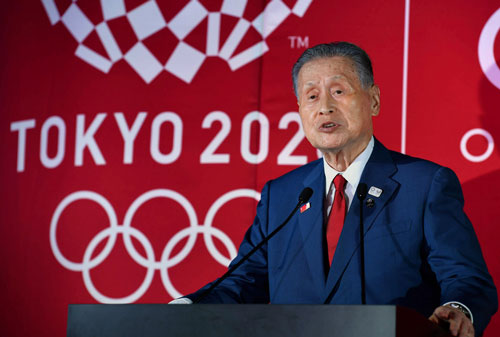Tokyo
Yoshiro Mori resigned as the president of the Tokyo Olympic organizing committee on Friday after sexist comments made last week in which he said women “talk too much.”
The resignation of the former Japanese prime minister at an executive board meeting has left a mess in its wake. And it comes just over five months before the postponed Olympics are to open in the middle of a pandemic with public sentiment overwhelmingly against the games.
The executive board did not immediately choose a successor for Mori, which CEO Toshiro Muto said would come “as soon as possible” and will be made by a review committee. He called it a “single-digit body” made up equally of men and women, and he repeatedly declined to give a specific time frame.
Muto also declined to say if Mori’s replacement would be a woman. Gender inequality in Japan is exactly the issue that was raised last week by Mori’s demeaning comments, and what drove his ouster. Women are largely absent in the boardroom and in top politics in Japan, and Muto acknowledged that the organizing committee has too few women in leadership roles, and no women at the vice president level.
“For myself in selecting the president, I don’t think we need to discuss or debate gender,” Muto said. “We simply need to choose the right person.”
The front runner is probably Seiko Hashimoto, the current government Olympic minister who was also an bronze medalist in speedskating in the 1992 Albertville Games. She fits all the bills — female, a former Olympian, and she’s been around the organizing committee.
On Thursday, 84-year-old Saburo Kawabuchi, the former head of the governing body of Japanese soccer, gave interviews and said he had talked with the 83-year-old Mori and was likely to be his successor.
That news — that another elderly man was taking over — exploded Friday morning on national television and social media. A few hours later, Kawabuchi withdrew his candidacy at the board meeting and told Muto to make it public.—AP










